Episodes
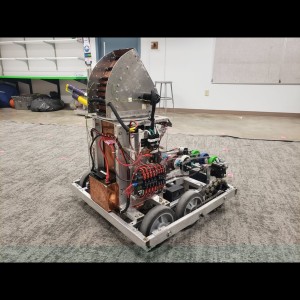
Tuesday Jul 19, 2022
Tuesday Jul 19, 2022
Louis teaches “Industrial Tech” at North Kansas City High School. That’s exciting enough. But one of his classes—and a ton of his extracurricular student assistance—is building robots with kids there.
The team competes under the international umbrella of the FIRST Robotics Competition.
Louis switched from his engineering degree to a new world of teaching skills like that to kids.
Here’s Louis’ adventure in teaching and how his kids’ robots are the same, and different, from those cool BattleBots on TV …
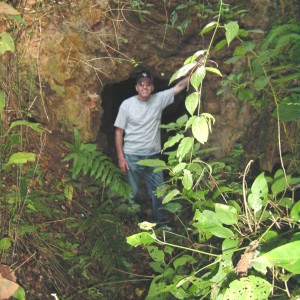
Tuesday Jul 05, 2022
Tuesday Jul 05, 2022
"If you believe that, I have a bridge in Brooklyn to sell you.” Maybe that line wouldn’t work on you, but what about somebody who says they’ve found gold, uranium, oil somewhere in them thar hills?
Retired geologist Dan Plazak (pronounced “PLAZ-ick,” not “PLAY-zack” as I figured) wrote a book on it: A Hole in the Ground With a Liar at the Top: Fraud and Deceit in the Golden Age of American Mining, an easy-to-pick up collection of swindle stories published in 2006 by University of Utah Press.
I talk to him about his childhood interest in geology that blossomed into a career, details on some seedy tales from the book and his research, his take on fracking, and his digging into doodlebugs. Don’t know what a doodlebug is? You will when you read the next book he’s working on, but he’ll tell you in this podcast, too. (And here in the January 2021 issue of the Geophysical Society of Houston Journal on page 31.) Listen on ...
P.S. Because of some audio problems, I had to rely only on Dan’s side of the audio, so mine is a little rough. But who cares what I say anyway?
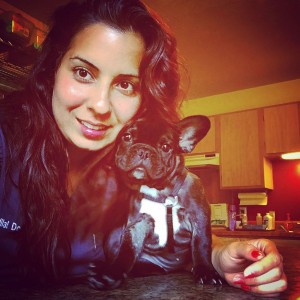
Tuesday Jun 21, 2022
Tuesday Jun 21, 2022
I’ve known Hilal Dogan for years now. She first came onto my radar when I worked for a veterinary publishing and CE conference company, and she was rocking The Veterinary Confessionals Project. She was a veterinarian by this time, although she put the project together during her time in veterinary school (hear more).
But that’s not my favorite thing about Hilal. My favorite thing about Hilal is she is a driven, goal-oriented free spirit. She is a paradox, and I love it.
Her latest goal, just achieved? Yoga teacher certification at this Denver studio. She jumped right into it during the pandemic the instant they opened their doors, and she adjusted her life of locum tenens (fancy word for part-time) veterinarian work around this new passion.
I love talking to Hilal. Now you get to enjoy it, too. Also, I left in our stumbling start, because I think it’s funny.
Learn about yoga. Learn about Hilal. Think about life with us …
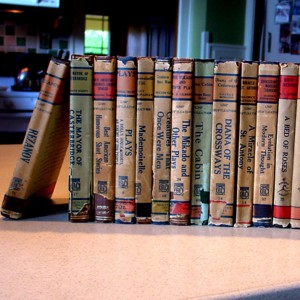
Tuesday Jun 07, 2022
Tuesday Jun 07, 2022
If you’ve been to a used bookstore, a thrift store or a house with many, many books, you absolutely positively have seen one: a reprint of another book collected in a series to make great work more accessible to average reader of modest means—and squeeze out the last dollar from books that otherwise would drop out of print.
I stumbled onto John Krygier’s online collection of such books as I work my way through the University Library and went hunting for others reading, collecting or studying works of great literature meant for the common woman and man. Before that, in this episode, we delve into geography, his college teaching specialty.
Then, it’s on the Modern Library and more.
If you’ve ever wondered what geography is all about, the weird nuances of maps, or the joy of collecting less-expensive rarities, this is for you.
P.S. John Krygier mentions The History of Cartography, Atlas of Design, and Lawn People.

Tuesday May 24, 2022
Tuesday May 24, 2022
When I spoke to her, Hannah was a manager at The Dusty Bookshelf in Manhattan, Kan., home of Kansas State University. Her location—there’s another in Lawrence, home to University of Kansas—sells new books, used books, gifts and other sundries and, yes, coffee. Hannah liked the coffee side of things so much, the hustle and bustle, helping folks fast and efficiently, that she was about to run off on a new adventure to manage a coffee shop in downtown Chicago. That’s a big leap for a young lady who grew up a “townie” in the college town, loves the small town, but, yeah, wanted to try something different.
So, the best part for me is, I also got to ask Hannah all about how she was planning to make the big move into a new apartment, a new city, a new-ish life of more opportunities to do more cool cultural stuff.
This podcast, then, is a two-fer: Bookstore managing! Making the big jump!
Big thanks to Hannah, to, who was the only manager, worker or owner at used bookstores nationwide who responded to my weird, cold-calling email request to answer my questions about life in bookstores. So, either I’m bad at asking folks for interviews, or bookstore owners, by nature, don’t want to be interviewed for stories, preferring the life behind the counter and between the pages to being a voice on the internet.
This was going to be part of a series, but, hey, until I grab half-a-dozen interviewees, let’s just say Hannah Emery is the best, most bad-ass bookstore manager I’ve ever interviewed … they broke the mold when they made her … and she’ll get to stand, at the end of this phase of her book-selling career, as a solitary statue of wisdom for us to enjoy ...
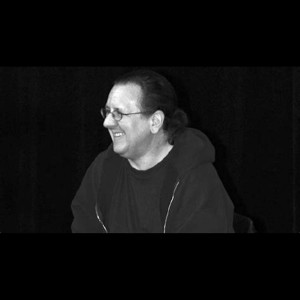
Tuesday May 10, 2022
Tuesday May 10, 2022
Jainism, birthed out of the rich religions of India, asks practitioners to be as careful as they can in not hurting a single thing. They step carefully on the ground and wear masks to avoid inhaling and accidentally killing the little things we thoughtlessly murder. Now, that, but writ large: Gandhi, and the nonviolent movement that sought Indian independence from British rule.
Well, we don’t talk about any of that, because as a fellow religious convert, I much more wanted to discuss Jeffery D. Long’s switch from small-town Missouri Catholicism to Hinduism over the decades. It turns out, the tale started when he was very young, but then culminated when he was much older: a seeking that finally a home in a newly embraced religion, but also an over-arching belief in the ability of man and man’s systems to change to embrace more peace, less war and violence.
Dive a lot into Long the main, some into his newly co-edited (and contributed) book, Nonviolence in the World’s Religions: A Concise Introduction (Routledge, 2022), and some more into his wanting to highlight the peace at the heart of some of the world’s religions at a time when the world is increasingly critical of the violence that bubbles up from religion’s adherents.
And, bonus, listeners! Long recommended books at the end of our recording session for beginners curious about Hinduism or other strands of Eastern religion he’s explored through the years. This is not an exhaustive list. Email him and I bet he’ll pony up with one.
A Survey of Hinduism, 3rd edition by Klaus K. Klostermaier (from SUNY Press, from Half Price Books online)
Vedanta: A Simple Introduction by Pravrajika Vrajaprana (from Vedanta Press)
Jainism: An Introduction by Jeffery D. Long (from I.B. Tauris)
Buddhism: A Very Short Introduction by Michael Carrithers (one of a long, lovely series on everything from Oxford)
What the Buddha Taught by Walpola Rahula (a marvelous one I read a year or so ago, from Grove Press in its most recent edition, with many older editions everywhere in the used-book market)
What the Buddha Thought by Richard Gombrich (from Equinox Publishing)
Empty, Empty. Happy, Happy. by Tyler Lewke (Redwood Publishing, 2019, on Amazon)
Autobiography of a Yogi by Paramahansa Yogananda (from the Self-Realization Fellowship, whose wide publishing has made this book a mainstay in used bookstores for decades)
Editor’s note: This interview is the second of a three-part series on Nation-Building, War and, right here, Peace. (Also in the works is a series on Birth, Adolescence and Old Age.)
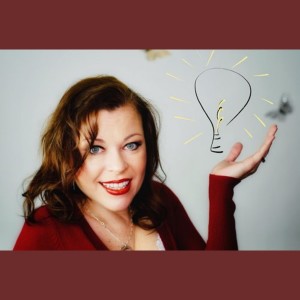
Tuesday Apr 26, 2022
Tuesday Apr 26, 2022
Oh, that means she does art projects at the local museum? No. Right, well, that means she helps creatives unstick when they’re working on their novels, like, say, Julie Cameron? Well, a little closer. No, Portia (at Mind Full Creatives) is really on the path of helping anyone with unleashing their creativity, but especially those who want to unleash creativity and actually get something done, whether that's a “solo-preneur” or a group of corporate bigwigs or multiple internal teams clashing right now over dreaming into the future and trying to find out what sticks.
I used to work with Portia for years in veterinary publishing, and now she’s one of my career-reimagining heroes (along with her, who’s a career coach now). She’s been on the podcast before about another job. That’s how fast she shifts. Ha!
What does Portia do as a creativity consultant? If you’re feeling stopped up or frustrated about idea generation or idea execution, what can you do?
“Identify when you feel creative and happy, and make more of that in your life,” she says here.
Let’s dig in.
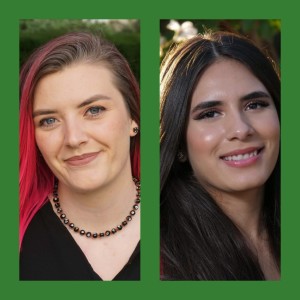
Tuesday Mar 29, 2022
Tuesday Mar 29, 2022
How do you keep learning when you get old? Keep learning when you get old. It’s not a riddle, say Tania Rodriguez and Leah Ferguson (with the red streaks on the left, if you see the thumbnail) working at the Calla Lab at UC Riverside with their inspiring leader, Rachel Wu, PhD. (Stay to the end to hear how awesome Wu is.)
Rodriguez is a first-year PhD student in the psychology program studying low-income minority older adults helping them to increase cognitive function and stave off cognitive decline in their later years. Ideally, she’d like her research to help us understand how older people can learn new skills and keep their brains healthier later in life. When you’re old and you want to learn something, you can, she argues.
Ferguson is another first-year student in the program, and she’s studying “learning based off of necessity” to help other underserved communities, like people with disabilities or citizens returning to society after being institutionalized in prison.
Our conversation rolls through neuroscience, how experiments are conducted (Calla Lab looks at brain waves and neuroscience evidence of learning, too), what learning looks like for older folks in tougher circumstances (like marginalized communities and people post-prison), and how they plant the question in everyone, even their own relatives: Why do you think you can’t learn things you want to learn when you’re old?
Can an old dog learn new tricks? Rodriguez and Ferguson say, heck yeah (not literally). Let them sell you on it!
This is the second in a three-part series on childhood, adolescence, and old age. Catch the adolescence episode here.
Editor’s note: I had to frantically buy premium Zoom while this conversation went on because, with two awesome guests, free Zoom was going to boot me after 40 minutes. If you can’t tell when I had to mute my mic and frantically enter credit card data, praying my guests wouldn’t stop or ask me a question, I did my job. Why, Zoom? Why?
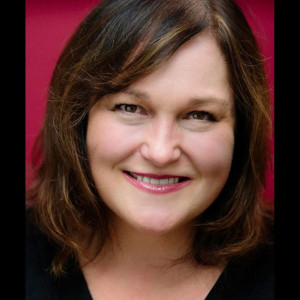
Tuesday Mar 15, 2022
Tuesday Mar 15, 2022
Kelly and I used to work together, and she was always very high-energy, a big laugher, a loud, ringing and positive voice. She was in sales, so none of that should surprise. But what I found out later, after I’d worked with her for a while, was she was an actress. Maybe on temporary, busy-life hiatus, but she’d had a whole ‘nother life before this one in the arts, in New York acting school, in New York performing and tryouts. Years before.
And she was back at it, trying out for a local this, working with a local group that.
This is Kelly’s story, from small-town midwest life as preachers’ daughter, but supportive preachers, and her first kiss with Christian Slater as kids at Starlight, and then acting college under greats in New York City and a solid 10 years trying to make it. And, finally, one day, deciding, no, this is about as far as I want to go. So, then, family, kids, back to the Midwest, and a more peaceful and differently amazing life.
When I found out I knew a real actor, and when I had a chance to ask her about it, well, I did.
And, at the end, Kelly says she was kinda glad her kids are going their own way and didn’t decide to try to make it.
Kelly is happy being an actress, couldn’t even get away from it, but in her own way in her own time.

Tuesday Mar 01, 2022
Tuesday Mar 01, 2022
"Whimsy ponderable”: how Carol Branson’s friend described her art. I’d call it child-like, folk-art-flavored found art. You can see the fun, but it makes you think, too. Her online gallery starts with old guitars and goes from there. My daughter is particularly partial, in a major way, to the skateboard art. There’s wood, metal, paint and lighting elements: found objects transformed into feelings and color.
Carol shares how she started in art, how theater and art played roles in comforting and guiding her as she was outed as a gay woman before high school, and how working with her hands has played such a big part in her careers (from theater manager to arborist) and her free time. Her art’s shown up in churches, at art galleries and even Union Station. As the pandemic winds down, she’s trying to find more nice ways to show her art and interact with the folks who come by to tell her how it makes them feel.
Let Odd Job Grrl, a business/pseudonym she came up with when she needed to invoice something on a letterhead, share with you her even-keeled, joyful, found-art approach to making things because you want to, not just the things the world tells you to make …
P.S. My refrigerator came on and started making noise, so I cut that part out. Sorry, if you wanted to hear it.
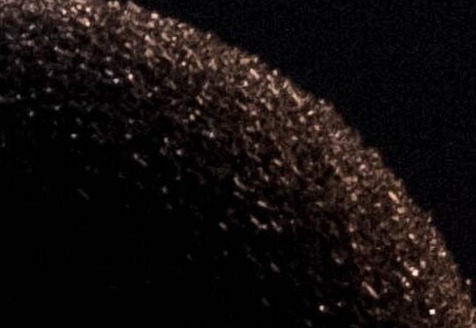
What People Do: Interviews of Discovery
When COVID happened, I started talking to friends, family and acquaintances about something they did. The topics, personalities, and conversational directions go many different ways, but the important thing remains the same: We are all worth the time it takes to sit down and talk a while to each other. What would you learn if you slowed down, asked more questions, and delved into something interesting to ... someone else?



